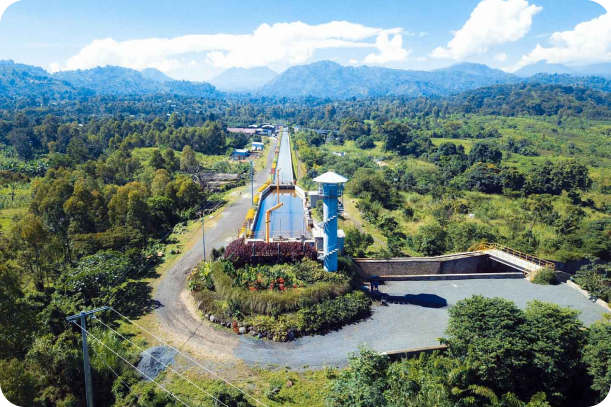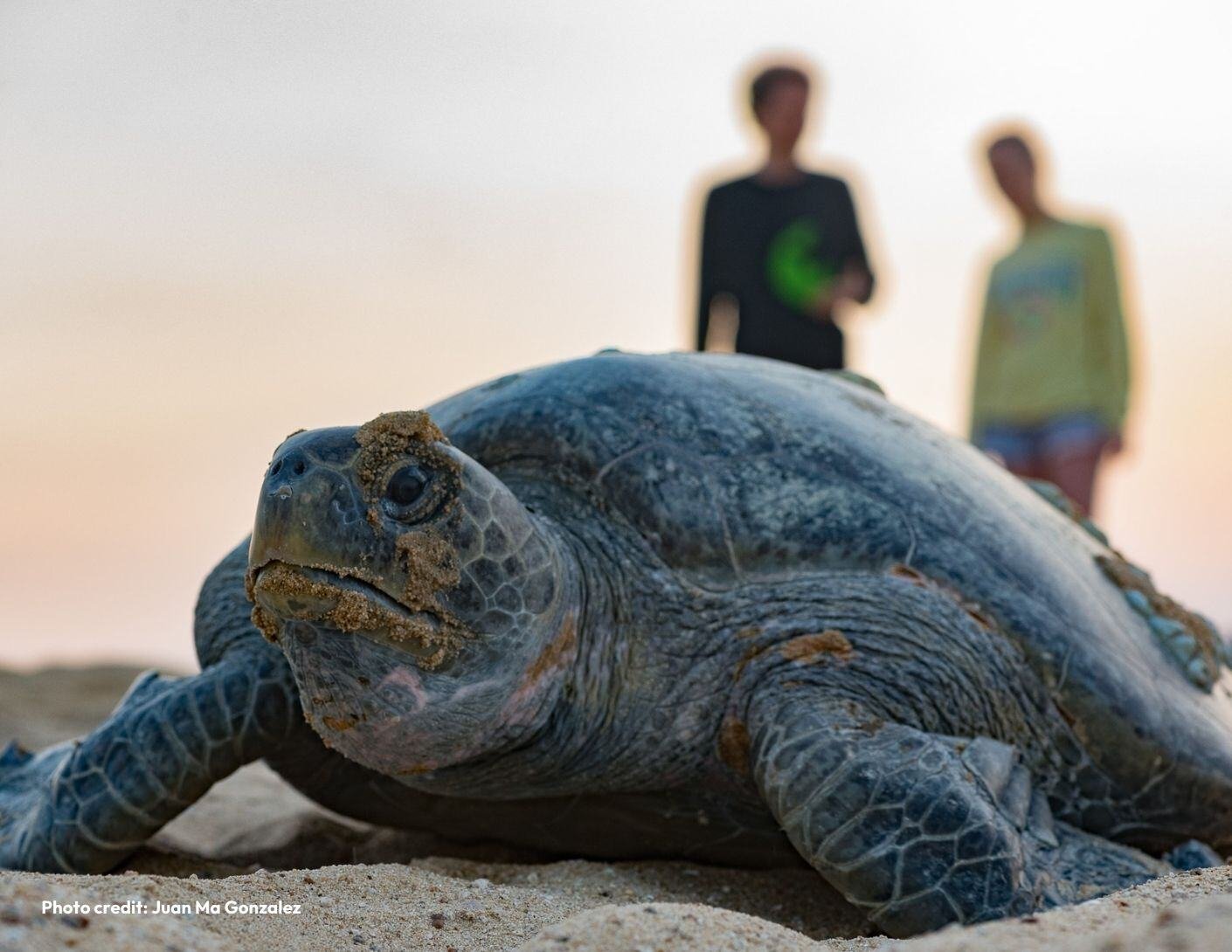SUSTAINABILITY AT TURTL

COMBATING OUR DATA'S CARBON FOOTPRINT
Turtl is committed to offsetting the carbon emissions generated by our data and our customers’ data.
In Virunga National Park in the Democratic Republic of the Congo, a run-of-river power plant was built to provide green energy to previously unelectrified areas. This project created local jobs and protected the park’s native habitat of mountain gorillas.
Thanks to the success of this project, we’re teaming up with ClimatePartner to set up a second hydropower plant in the area.
OFFSETTING THE CARBON FOOTPRINT OF YOUR DATA
We’re working with ClimatePartner to responsibly reduce CO2 emissions!
What did we choose?
We’ve chosen to offset our carbon emissions with ClimatePartner.
Their project at the Virunga National Park in the Democratic Republic of the Congo aims to develop hydropower in the area which will benefit the local community, and protect the park’s native habitat of mountain gorillas.
We chose this project as it meets 11 UN Sustainable Development Goals, aligning with Turtl's values on tech accessibility and nature-inspired workflows. Renewable energy growth is key to combating global warming and ensuring future energy supplies.
Your carbon footprint
You’re not only eliminating the carbon emissions of mass-scale paper production by joining Turtl. The carbon created from your Turtl-generated data will be offset by the Virunga National Park project.
For every tonne of CO2 your data creates, we pay an amount to the project which will be used to help reduce an equivalent amount of carbon in the atmosphere.
SAVING THE TURTLES, ONE HATCHLING AT A TIME
It seems only right that we’d play our part in protecting our namesake… That’s why we’re partnered with one of the world’s leading turtle conservation non-profit groups, SEE Turtles.
As a charity partner, we’re supporting SEE Turtles efforts to save millions of turtle hatchlings, clean up plastic from beaches and oceans, and combat the illegal turtle trade.

SHELL-EBRATING OUR PARTNERSHIP WITH SEE TURTLES!
Why SEE Turtles?
Since they’ve started, SEE Turtles, one of the world’s leading turtle conservation non-profit groups, have won numerous awards for their work. Their programs provide funding, resources, and tools to protect endangered sea turtle species in the Global South.
As a charity partner, we’re sponsoring them as they work to save millions of turtle hatchlings, clean up plastic from beaches and oceans, and combat the illegal turtle trade.
Close to Turtl's heart
With values like ‘All for one and one for all’ and ‘Tenacity and persistence’, Turtl’s culture champions:
- Making a difference
- Leading with compassion
- Working together to be better
To bring this culture beyond our day-to-day activities, we want to align with an organization that shares those values and support them in their work.
MORE ABOUT TURTL
OVER 85% WIN RATE ON PROPOSALS
Read how Peoplesafe got to a staggering 85% win rate on bids and proposals with Turtl.
CLOSE THE REVENUE GAP
Discover how to solve the biggest problem impacting your marketing performance and pipeline.
550% INCREASE IN REVENUE
See how Kantar achieved an incredible 5x increase in marketing attributed revenue and a 250% increase in conversion.
WHAT IS REVENUE CONTENT?
Learn how to build a bridge between your marketing and return on investment.
